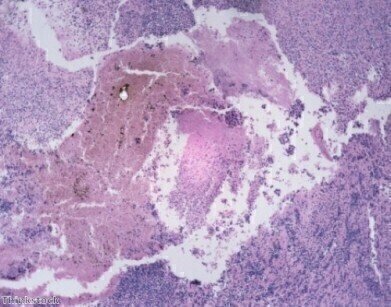-
 Genetic mutations warn of skin cancer risk
Genetic mutations warn of skin cancer risk
News
Genetic mutations warn of skin cancer risk
Apr 03 2014
Researchers at the University of Leeds have found that a mutation in a specific gene is responsible for a hereditary form of skin cancer, which could help thousands of people get early diagnosis.
Each year in the UK, nearly 12,000 people are diagnosed with melanoma, a form of skin cancer. It is estimated that one-in-20 patients suffering with melanoma have a strong family history of the disease. For these people, discovering the exact genetic mutation that triggers the disease's development allows dermatologists to pinpoint those who may be deemed at high risk and be enter melanoma surveillance programmes.
The team at Leeds, as well as researchers from the Wellcome Trust Sanger Institute in Cambridge, found that people with specific mutations in the POT1 gene were extremely likely to develop melanoma. The POT1 protects the ends of chromosomes from damage but the mutations are deactivating the gene.
As these mutations shut down POT, the telomeres - the regions at the end of chromosomes - are left unprotected for longer, putting them at risk of becoming damaged.
Professor Tim Bishop, of the School of Medicine at the University of Leeds, a senior co-author, said: “This finding significantly increases our understanding of why some families have a high incidence of melanoma.
“Since this gene has previously been identified as a target for the development of new drugs, in the future, it may be possible that early detection will facilitate better management of this disease.”
It is estimated that genetic mutations account for around 40 per cent of all inherited forms of melanoma.
Dr David Adams, co-senior author from the Wellcome Trust Sanger Institute, added that genomics is on the "verge of transforming the healthcare system". This study highlights potential clinical benefits that can be gained through genomic studies and could lead the way to strategies to that could potentially improve patient care and disease management.
He said that this discovery should help doctors to determine who is most at risk of developing melanoma and ensure they are screened for early detection.
Digital Edition
Lab Asia Dec 2025
December 2025
Chromatography Articles- Cutting-edge sample preparation tools help laboratories to stay ahead of the curveMass Spectrometry & Spectroscopy Articles- Unlocking the complexity of metabolomics: Pushi...
View all digital editions
Events
Jan 21 2026 Tokyo, Japan
Jan 28 2026 Tokyo, Japan
Jan 29 2026 New Delhi, India
Feb 07 2026 Boston, MA, USA
Asia Pharma Expo/Asia Lab Expo
Feb 12 2026 Dhaka, Bangladesh


















